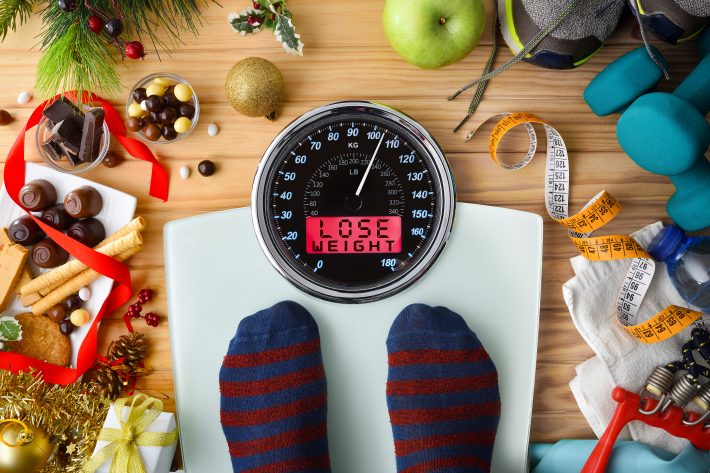How to Not Gain Weight During the Holidays?

Looking for the ideal health insurance plan but dreading the process? At Find The Plan, we can pinpoint the perfect plan in less than 15 minutes, and our services are free! Our experienced team is just a click away to help in the process. Say goodbye to paperwork hassle and hello to peace of mind. Reach out now for a free consultation, and let us help guide you to the right plan.
Holidays are meant to be a joyful time filled with friends and family gatherings, happiness, relaxation, and lots and lots of food. This time of leisure, when combined with eating deliciously prepared lunches and dinners, can leave you with extra pounds that stay even after the holidays are over. The tradition of eating calorie-rich food, overeating, and sedentary behavior is known to cause weight gain, especially from November to January. According to one estimation, adults gain 1 pound or 0.5 kg of weight on average during this time in Western Countries. Although it is a tradition to spend holidays in a joyful manner without worrying about anything, holiday weight gain can be avoided with a little effort on your part.
Following are ten useful tips that can help you avoid gaining extra pounds under your belt:
- Find Ways to Stay Active
Watching TV for hours while chit-chatting with family is a common holiday tradition. When this is combined with larger-than-usual meal sizes, it can result in substantial weight gain. Exercise is an excellent way of burning those extra calories. Try and replace some of the sedentary traditions with more active ones. Take a walk after dinner with family members and use it as a bonding session. Plan fun activities like hiking, swimming, skiing, and dancing with family to stay active without losing that “fun” feeling.
- Eat in an Order
Planning your food order can help limit overeating. Start with a salad, fresh fruits, or roasted vegetables. These foods are low in calories and have high fiber content. Have lean proteins next, and leave high carbs foods like rice, potatoes, pasta, and desserts, for the end. This way, your appetite will be lower when you get to high-calorie food.
- Cut Down Your Portion Sizes
Limiting your portion sizes is a classic tip to avoid weight gain. Research shows a positive link between larger portion sizes and obesity. It is easy to fill up your plate with more than you need during holidays but make a conscious effort to avoid it. Using smaller plates can also help you avoid overeating.
- Keep Your Stress in Check
Holidays are meant to be a time of rejuvenation and relaxation. But ironically, they can sometimes stress you out. Stress eating is a real thing especially when all sorts of delicious foods surround you. Stress can be the main culprit of your obesity as it can enhance your cravings for junk food, as established by research. So, keeping your stress under control should be one thing you consider during the holiday season.
You can try the following things to calm your nerves and manage your stress:
- Exercise
- Yoga
- Meditation
- Deep breathing
- A hot bath/shower
- Listening to your favorite music
- Talking to a friend or a loved one
- Don’t Skip Meals to Get Ready for Holiday Dinner
Some people tend to skip meals to save room for extra calories before a holiday dinner or party to avoid over-caloric intake. However, this strategy might not be as effective as one might think. Skipping meals makes you caloric deficit and enhances your hunger levels. This can make you binge eat when you finally get to dinner, which is unhealthy.
Instead, the recommended practice is to practice intermittent fasting. Limit your eating to an eight-hour period each day. Intermittent fasting has been shown to be an effective strategy to support a healthy weight. Additionally, you should make sure to add vegetables, fruits, and high-protein foods to your diet to get enough energy.
- While Counting Calories, Don’t Forget the Beverages
Alcohol and high-caloric drinks like soda, juice, and coffee drinks with added sugar are quite common during holidays. These beverages have a high-caloric count and can significantly contribute to weight gain as shown by research. Alcohol has been shown to contribute to weight gain as it can alter your appetite and make you eat more. Additionally, alcohol can lower your inhibitions and make you overeat. To avoid this obesity hazard, limit your alcohol intake and make sure to drink plenty of water to keep your hydration levels high.
- Be Mindful While Eating
Holidays are filled with festivities. Generally, there are many planned activities and a lot of chit-chatting happening while everyone is sitting at the dinner table. All this noise and a rush to get things done can easily make you lose track of what you are eating. The same is true when you eat while watching a TV show or movie. Being mindful while eating is known to be an effective way of keeping track of your food intake and controlling your weight.
Pay attention to what you put on your plate, take a few deep breaths before starting to eat, and chew each bite to help with quick digestion. Thoroughly chewing your food has been shown to be linked with early satiety and less food consumption, thus discouraging weight gain.
- Get Your Self a Weight Goal Buddy
One way to stick to your weight goals is to get in touch with friends, family, and colleagues who have similar goals as you. The buddy system provides you with much-needed support for weight maintenance as you can keep each other motivated and accountable.
- Minimize the Taste Testing
Taste testing is an essential part of cooking and baking. People are used to tasting their food during preparation to make sure they are getting the right taste. However, keep in mind that frequent taste testing during cooking can add up. While taste testing might be necessary to cook your dishes to perfection, try tasting only a tiny bite of food if you must. Plus, do not get into the kitchen while you are hungry as you are more likely to go overboard with taste testing on an empty stomach.
- Bring a Healthy Dish to the Table
Holiday dinner tables are laced with all forms of mouth-watering fried and high-carb junk food. Controlling the temptation to indulge in all those dishes can be a challenging task. Bringing a healthy dish while attending a dinner party cannot only be a pleasant gesture, but it can also give you a choice that aligns with your weight control goals.
- Categories:




